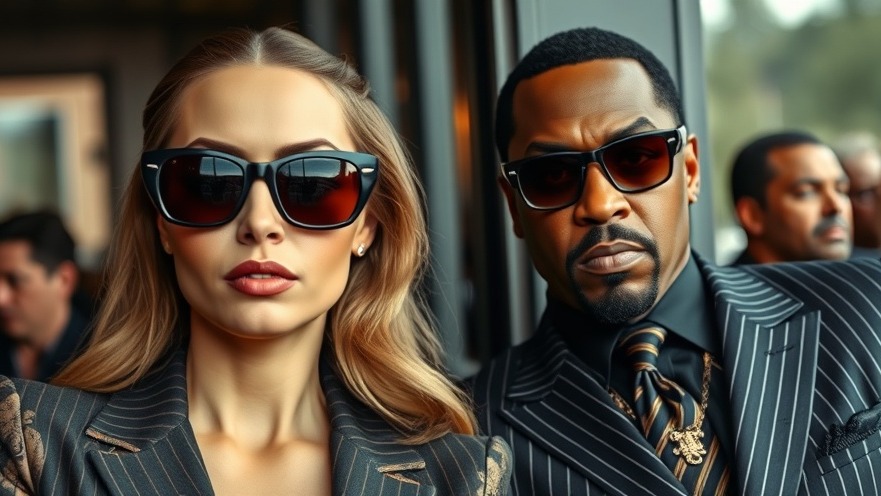
Overview of the Diddy Mistrial Request
In a dramatic twist in the ongoing legal saga surrounding Sean "Diddy" Combs, the music mogul has filed for a mistrial in his federal court case concerning an incident from 2016. Central to this request is the accusation that the prosecution presented knowingly false testimony from a key witness, Bryana "Bana" Bongolan, a friend of Diddy's former girlfriend, Cassie. This latest development highlights the complex interplay of celebrity, legal standards, and the public's perception of justice.
What Led to the Mistrial Filing?
Diddy's legal team alleges that Bongolan's testimony should have been discredited, asserting that her statements contained discrepancies that could mislead the jury. The claim arises from an incident on a balcony that allegedly involved physical altercations, raising serious questions about the integrity of the testimony presented in court. This mistrial request not only aims to protect Diddy's legal rights but also illustrates the broader implications of witness credibility in high-profile cases.
Implications of Juror Interactions
The situation is further complicated by allegations of improper interactions between jurors and the parties involved. Defense attorneys have expressed concerns that these interactions could bias the jury’s decision-making process, undermining the fairness of the trial. As highlighted by legal experts, even the mere appearance of impropriety in jury conduct can jeopardize the integrity of the judicial process and lead to appeals or further mistrial requests.
Contextualizing the 2016 Incident
The balcony incident has been a focal point of legal discussions surrounding Diddy’s behavior and public persona. Events from nearly a decade ago can resurface in unforeseen ways, particularly when they involve celebrities whose lives are under constant scrutiny. The public and media often speculate on motivations behind legal strategies employed by public figures, adding layers to the narrative that go beyond the courtroom.
Legal Perspectives on Mistrial Requests
Legal experts frequently argue that mistrial requests can be both a strategic maneuver and a legitimate safeguard against judicial errors. According to legal analysts, Combs' move aims to rectify perceived injustices within an inextricably flawed presentation of evidence. While the outcome remains uncertain, the ramifications of this decision could resonate in discussions about celebrity accountability and the legal standards that govern them.
Future Implications for Diddy and Celebrity Cases
What does this mistrial request mean not only for Diddy but for others in Hollywood facing scrutiny? The entertainment industry often exists in a bubble, yet the law applies universally. The upcoming decisions regarding this case may set precedents related to celebrity rights and the responsibilities of legal representatives overseeing their cases. Diddy is not alone; many public figures have faced similarly scrutinized legal battles. The outcomes of such cases can redefine public expectations regarding disputes in the public eye.
Conclusion: The Ongoing Narrative of Celebrity Justice
As this case unfolds, it becomes increasingly apparent that the intersection of fame, justice, and personal accountability remains a topic of heated discussion. Diddy’s situation offers a critical lens through which we can examine how legal systems operate in the age of social media and celebrity culture. The ability to navigate such complex waters will remain a pertinent challenge for both the musician and his legal team.
 Add Element
Add Element  Add Row
Add Row 



Write A Comment